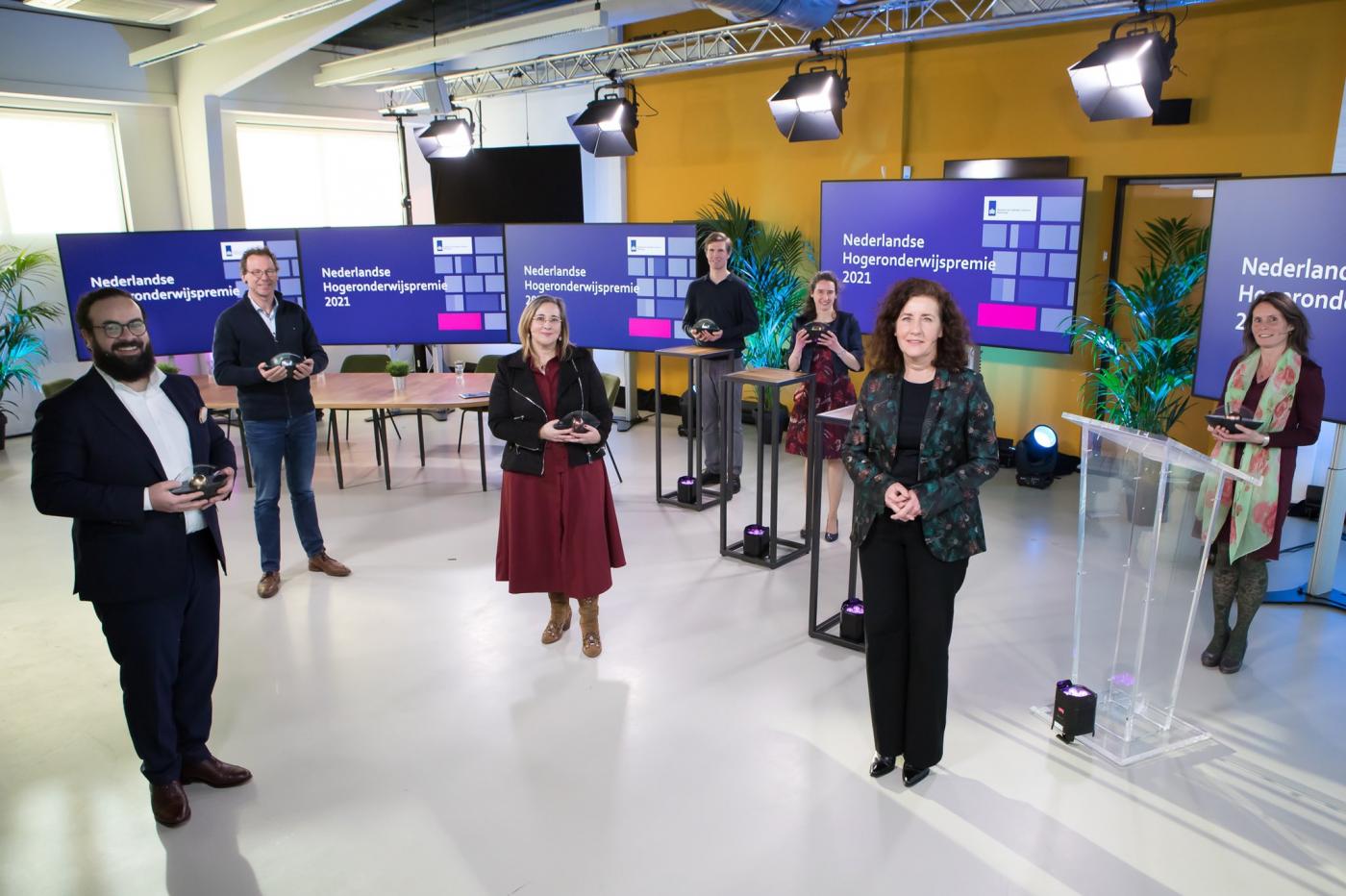Minister of Education: higher education needs an extra billion euros

“Perhaps now you will understand the uphill battle I have been fighting in recent years”, says the minister. “With the current government, we have spent 1.9 billion euros extra on education and some parties did so against their will”.
She is mainly referring to VVD, the party of Prime Minister Mark Rutte, who wants to cut funding to universities and universities of applied sciences in hopes that they will begin cooperating more and offer fewer degree programmes. "That is saying a lot. I think that’s deeply concerning.”
So, what’s going on?
“If we want to emerge from this crisis stronger than before, and we want to boost our country’s earning capacity, then we must invest in science and innovation. The business community agrees with this, but VVD does not. If you have a heart for science and higher education, then I have some voting advice for you”.
The report by consultancy firm PwC budgets approximately one billion euros for the entire higher education sector. Knowledge institutions and activists ask for even more. Will it be enough?
“The House of Representatives inquired if the budget for education and research is sufficient. The consultants state that it is not. It is not up to me to decide whether it should be even more.”
But you've said yourself that the sector needs one billion more.
“Just like others. I am very happy to see a strong substantiation for this amount. These arguments should have a solid foundation”.
But the money never appeared. Is the new government planning to pick up the slack?
“I do hope that this analysis will soon be on the government formation table and that parties will agree: funding needs to be sufficient. If this type of investigation is requested with broad-based government support, then commitments will be necessary”.
But there are more ongoing discussions. In the event that a new study grant is introduced, will the billion-euro budget be spent on that?
“Funding for education and the new study grant are two separate things, as far as I’m concerned. I would like to tell all parties: avoid tunnel vision and look beyond student financing. The introduction of a new grant is a very important decision for students, but to emerge stronger from the crisis we must also invest in education and science”.
During the coronavirus crisis, the government allocated 645 million euros to cope with the massive increase in the number of students. Is this included in the billion?
“No, this is a separate budget. There are simply more students and due to the coronavirus crisis they are likely to stay enrolled in higher education for longer. Rather than wait and see what might happen, we decided to make funding available now.”
There is also a report by the Berenschot consultancy firm on the distribution of the money. Do you still believe that student numbers should have less of an influence on the funding of higher education?
“Yes, because there are two important societal questions on the table. What do you do about small but important degree programmes that are at risk of disappearing? And what decisions will you make for education in contraction regions?”
Is Dutch language and culture an example of such a small field?
“Yes, but other examples include [professor and activist, ed.] Remco Breuker’s Korea studies programme at Leiden University. These fields might not draw large numbers of students, but they are very important in terms of keeping track of what goes on in the world. Societies need to make an effort and learn about cultures all over the world”.
Berenschot warns that less student funding negatively impacts accessibility. Will degree programmes then become more selective and will they attract fewer students?
“Accessibility is key and we need to make agreements about it. But when degree programmes disappear, they are not accessible at all any more. We do not want to see the current range reduced.”
VVD, on the other hand, is all for a reduction of programmes.
“Yes, and for halving the tuition fees for programmes in sectors suffering shortages. This idea of manufacturability surprises me, as it disregards the importance of accessibility. Everyone knows that young people flourish when they are studying something they feel passionate about. When people are highly educated, they almost always find their way in the job market, so there’s no need to worry about that either”.
Would you rather have a wider range?
“We should acknowledge how important the full width of science is. Take a look at how Eindhoven University of Technology, Wageningen University & Research and Utrecht University are cooperating in a wide range of scientific areas. This is very fruitful.”
The hope is that stable funding will lead to more permanent contracts. The opinions of institutions vary greatly in this regard. Wouldn’t it be better for the government to set demands instead of giving financial incentives?
“Of course we hope that institutions will begin giving employees permanent contracts more often. Should the next government decide to invest a billion – and in my opinion, they should – then new administrative agreements will have to be reached as more money also means better contracts.”
More research funding is also required for universities of applied sciences: the report states approximately 120 to 270 million euros per year.
“I wholeheartedly agree with this sentiment. The applied research conducted by universities of applied sciences is very important to the regional business community as this is the source of a lot of innovation. If we want to ensure the appeal of contracting regions, then this is the way to go.”
Someone needs to get to work on those reports. Would you be interested in becoming a Minister again?
“I’m not going to answer that question. The elections are just around the corner and we will find out what Dutch voters want. After that, we can start discussing who will be doing what”.